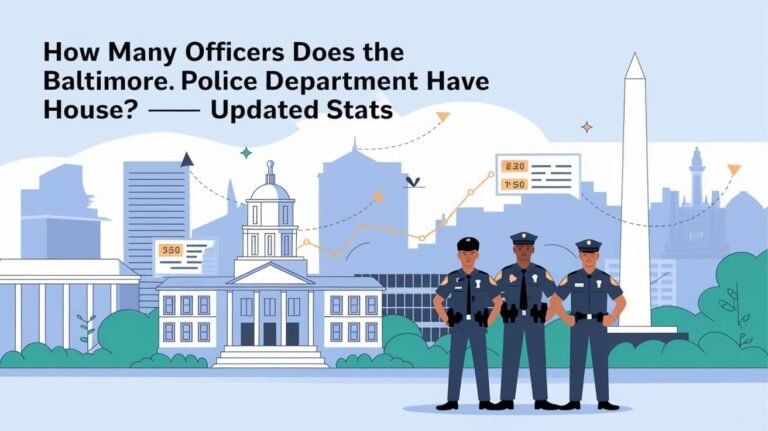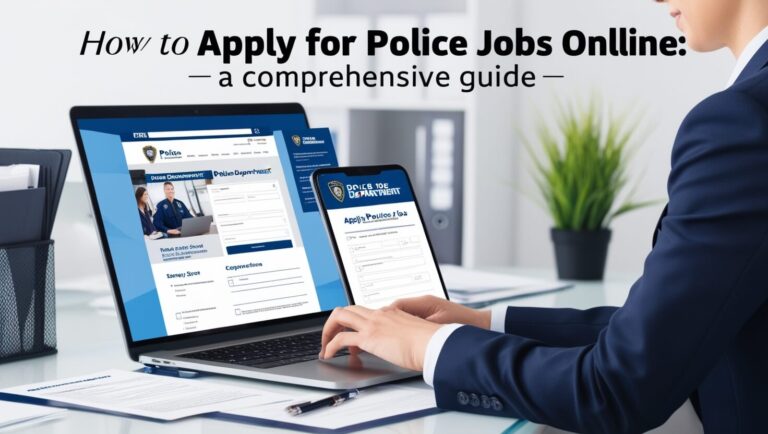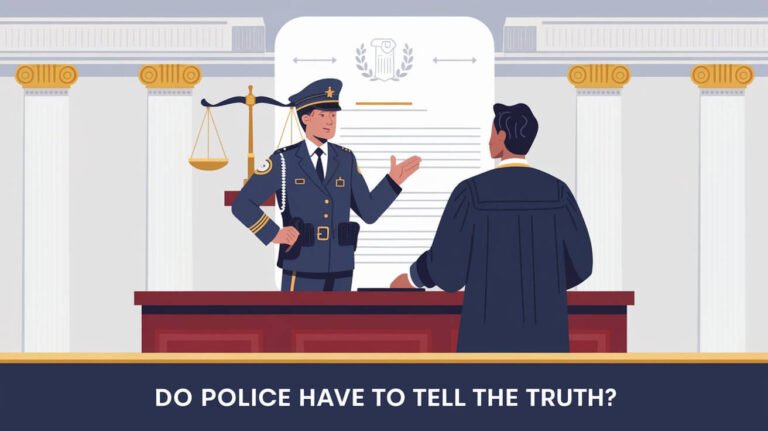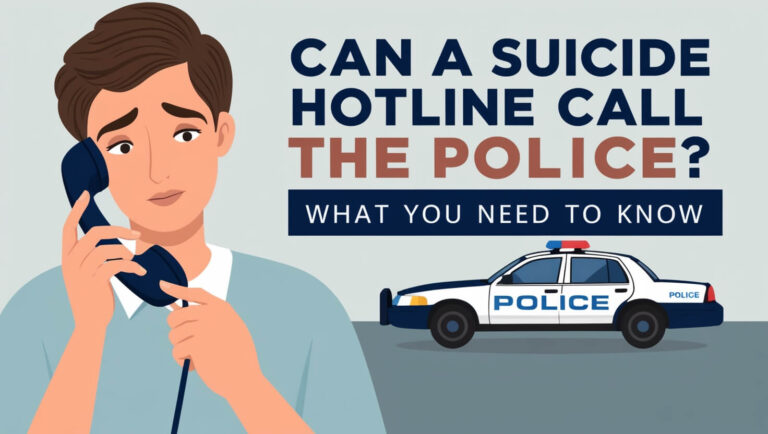Can Car Insurance Companies Go To The Police? Facts To Know
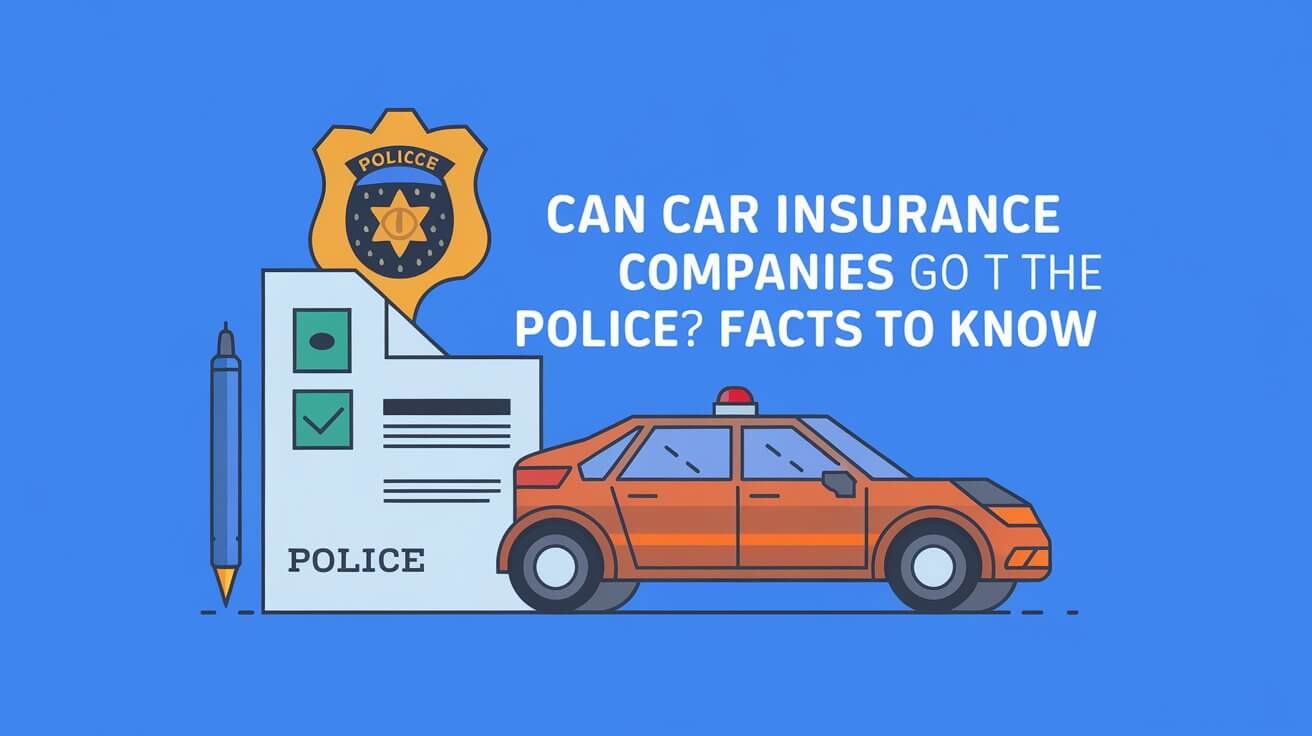
Car insurance companies can work with the police in some cases. For example, after an accident, they might share details like where it happened, when, and what kind of policy they have. They also give out information about the vehicles involved.
This helps the police make an official report and figure out who was at fault. It’s important for both the police and insurance claims. But, insurance companies have to be careful not to share too much, to protect their customers’ privacy.
When a police officer asks for the insurance claim report, the policyholder must agree. Insurance companies can share certain details with the police. This includes how much coverage they have, repair estimates, and photos of any damage.
This information helps the police understand the accident better. It also helps them decide what to do next. So, car insurance and police reports are closely connected in solving accidents and figuring out who’s at fault.
Legal Rights of Insurance Companies
Insurance companies have legal rights to investigate and process claims. They can access police records to learn about a claimant’s history. This helps them assess the risk and spot fraud.
State-specific Reporting Requirements
Each state has its own rules for insurance companies. For example, some states make them report certain claims to the state’s department of insurance. Insurance companies must know these rules in each state they operate in.
Insurance Fraud Investigation Powers
Insurance companies can investigate suspected fraud. They might do surveillance, interview witnesses, and check medical records. They can also ask for more information from claimants.
Policyholder Privacy Protections
Insurance companies have rights but also must protect policyholder privacy. They must keep personal and medical info confidential. They use this info only to process claims.
| State | Reporting Requirements | Insurance Fraud Investigation Powers | Policyholder Privacy Protections |
|---|---|---|---|
| California | Requires insurance companies to report certain types of claims to the state’s department of insurance | Allows insurance companies to conduct surveillance and interview witnesses | Requires insurance companies to keep claimants’ personal and medical information confidential |
| New York | Requires insurance companies to report certain types of claims to the state’s department of financial services | Allows insurance companies to review medical records and request additional information from claimants | Requires insurance companies to only use claimants’ personal and medical information for the purpose of processing their claim |
Insurance Fraud Detection and Police Cooperation
Insurance companies have special units to fight fraud. They work with police to catch and stop fake claims. This teamwork is key to stopping fraud, which costs a lot of money each year.
Insurance companies use many ways to find fraud. They look at claims data and do investigations. They also use technology to spot fake claims. For example, most insurers use special software to find suspicious claims.
Insurance fraud can be very different. It includes faked accidents, over-exaggerated claims, and taking money meant for premiums. To fight this, insurance and police must share information and work together. This helps stop fraud and protects people from losing money to scams.
- Insurance companies use various detection methods, including data analytics and anti-fraud technology.
- Police cooperation is essential in investigating and prosecuting insurance fraud cases.
- Insurance fraud can have a significant financial impact on consumers and the industry as a whole.
When Insurance Companies Must Contact Law Enforcement
In cases where an accident involves suspected criminal activity, insurance companies must work with law enforcement. They need to respond to subpoenas and court orders. They also have to give any information that helps with the investigation.
Major accidents and fatalities require law enforcement involvement. Insurance companies must give detailed reports. They also need to fully cooperate with the authorities to find out what caused the accident and who is at fault.
Situations Requiring Police Involvement
- Hit-and-run incidents, where a driver flees the scene of an accident
- Accidents resulting in serious injuries or fatalities
- Incidents involving suspected criminal activity, such as drunk driving or reckless endangerment
Working with law enforcement in these situations, insurance companies help. They make sure those responsible are held accountable. And they ensure victims get the compensation they deserve.
Your Rights During Insurance Investigations
As a policyholder, knowing your rights during insurance investigations is key. Insurance companies can investigate claims, but you have rights too. It’s important to understand the process and what to expect.
Insurance companies look at police reports to figure out who’s at fault. A good police report can help your car accident claim. But, insurance companies can deny claims even if the police say someone is at fault. This shows how important it is to know your rights during these investigations.
Some important things to remember during insurance investigations include:
- Insurance companies may ask for and look at police reports to understand the accident and who’s at fault.
- A good police report can help get a better settlement or court decision.
- Having a lawyer who knows the law and can use a good police report is very important.
- Insurance fraud can make premiums go up, so it’s important to report any suspicious activity.
Also, canceling an insurance claim while it’s being investigated might lead to fees or deadlines. Knowing your rights and the insurance investigation process can help you make good choices and feel more confident.
Police Reports and Insurance Claims
After a car accident, it’s key to call the police if there are injuries or big damage. In places like New York, the police must be told, and they write a detailed report. This report is very important for figuring out who was at fault and for insurance claims.
The police report has important details like when and where the accident happened, who was involved, and what damage there was. Insurance companies use this report to figure out who is liable and to talk about settlements. Sometimes, the police report can show who was at fault right away, making the claims process faster.
Access to Official Documentation
You can get police reports in different ways, like the New York Police Department’s online portal. In states like Mississippi, you must file a police report if there’s over $250 in damage or if someone gets hurt.
Impact on Claim Outcomes
The police report is very important for insurance claims. It helps adjusters figure out what happened and how much damage there was. If there’s a disagreement, the report can help solve it.
Timeline Requirements
There are time limits for getting and using police reports. In New York, reports are online within seven days. In Mississippi, you have ten days to file a report. Also, there are time limits for suing after a car accident, usually three years in places like New York and Mississippi.
| State | Timeline for Filing Police Report | Statute of Limitations for Filing Lawsuit |
|---|---|---|
| New York | Up to 7 days for online access | 3 years |
| Mississippi | 10 days | 3 years |
Knowing how police reports affect insurance claims is very important. By understanding how to get these reports and their role in claims, people can handle their claims better. This helps make sure they get fair compensation for their losses.
Insurance Company Investigation Methods
Insurance companies use many ways to check claims and see if they should cover them. They look at police reports, talk to claimants and witnesses, and check damages to cars and buildings.
Some common ways insurance companies check claims include:
- Looking at phone and work records to check claimant info
- Checking cars to see damage and who was at fault
- Looking at road upkeep to find accident causes
- Watching online and social media for clues
They might also watch claimants in public places or track their movements. They ask people close to claimants, like family and friends, for more info.
Claimants can also do their own checks to make sure all facts are looked at. This helps prevent insurance companies from picking and choosing what to see. It makes sure claims are looked at fairly.
| Investigation Method | Purpose |
|---|---|
| Reviewing police reports | To figure out fault and damage |
| Conducting interviews | To get info from claimants and witnesses |
| Assessing damages | To see how much damage there is |
Legal Boundaries Between Police and Insurance Companies
There are legal limits to how police and insurance companies can work together. These rules protect people’s rights and make sure information is shared fairly. Privacy laws are a big part of these rules.
Insurance companies have to be careful with these rules. They need to check claims but also keep people’s privacy. Sharing information with police is sometimes necessary, but they must follow privacy laws.
Information Sharing Protocols
Insurance companies have to have clear rules for sharing information. They need to know how to ask for and share data with police. They also have to make sure personal info stays safe.
Privacy Laws and Regulations
Privacy laws are very important in the relationship between police and insurance companies. These laws say how personal info can be used and shared. Insurance companies must follow these laws when they check claims. This might mean getting permission before sharing info or keeping it safe from hackers.
Documentation Requirements
Insurance companies also have to follow rules about keeping records. They need to document their investigations, including any info shared with police. This helps make sure claims are looked into fairly and keeps people’s rights safe.
Protection Against False Insurance Reports
False insurance reports can cause big financial losses and harm your reputation. It’s key to protect yourself from these reports. The Coalition Against Insurance Fraud says fraud costs Americans over $80 billion yearly. This shows why we must act to protect our interests.
If you face a false insurance report, getting legal recourse is important. You might want to talk to a lawyer who knows insurance law. Also, using good documentation strategies can stop false reports before they start. Keep detailed records of accidents, like photos and witness statements.
Preventative Measures
- Check if the insurance info from others in an accident is right
- Document everything about an accident, like damages and injuries
- Tell the police if you see something odd
Doing these things, you can lower your chance of being hit by false reports. You’ll also make sure you can get legal recourse if needed. Good documentation strategies are key in stopping and dealing with false reports. They help protect you from financial and reputation damage.
Insurance Policy Clauses About Law Enforcement
Understanding insurance policy clauses about law enforcement is key. These clauses affect how claims are handled and what information is shared with the police. Knowing these clauses is vital for the outcome of a claim.
Insurance policy clauses about law enforcement aim to protect both the insured and the insurance company. Some policies require the insured to cooperate with law enforcement. Others limit the insurance company’s liability if the insured is found at fault.
Some important features of these clauses include:
- Coverage for liability from accidents, crimes, or medical emergencies
- Defenses for claims or suits alleging criminal, malicious, dishonest, or fraudulent wrongful acts
- Occurrence and claims-made coverage forms available for optional features/coverages
Insurance companies don’t automatically pay claims just because a police officer says the insured was at fault. They do their own investigation and decide based on the evidence. Knowing about these clauses helps policyholders understand their coverage better.
Last Thoughts
The relationship between car insurance companies and the police is complex. Insurance companies use police reports to check claims and figure out who’s at fault. The police are key in looking into accidents and fraud.
It’s important to know the legal rights and duties of both sides. This helps everyone understand their roles better.
In this article, we talked about how car insurance and law enforcement work together. This includes state rules for reporting and using police reports in claims. We also looked at why keeping policyholder information private is important and what legal steps to take if there’s a false report.
Now, it’s time to stay informed and take action. Learn about the laws in your area. If you run into problems with insurance companies or the police, get legal help. Being an informed car insurance policyholder protects your rights. It makes sure any police interaction is handled right.
FAQs & Solutions
Can car insurance companies interact with the police?
Yes, car insurance companies can talk to the police in some cases. This happens when an accident occurs and a claim is filed. They can share some information but must follow privacy laws and protect policyholders’ rights.
What are the legal rights of insurance companies when interacting with the police?
Insurance companies have certain legal rights and duties when dealing with the police. They must follow state laws for reporting accidents. They also have the power to investigate fraud and protect policyholders’ privacy.
How do insurance companies and the police cooperate in detecting and preventing insurance fraud?
Insurance companies use different methods to find fraud and work with the police to investigate and prosecute. This teamwork helps fight fraud and protect policyholders.
When are insurance companies required to contact law enforcement?
Insurance companies must call the police in certain situations. This includes accidents with suspected criminal activity, major accidents with injuries or fatalities, or hit-and-run incidents.
What are my rights as a policyholder during insurance investigations?
As a policyholder, you have rights during investigations. You should know how police reports are used and the legal process.
How do police reports impact insurance claims?
Police reports are very important in the claims process. They can affect the claim’s outcome. Policyholders should understand how to get these reports and their importance.
What investigation methods do insurance companies use?
Insurance companies use many methods to investigate claims. This includes police reports, witness statements, and other evidence to decide claim outcomes.
What are the legal boundaries that govern the relationship between police and insurance companies?
The relationship between police and insurance companies is guided by legal rules. These include protocols for sharing information, privacy laws, and documentation requirements.
How can I protect myself against false insurance reports?
To protect yourself from false reports, you can seek legal action. You can also use effective documentation strategies.
How do insurance policy clauses affect interactions with law enforcement?
Certain clauses in insurance policies deal with interactions with law enforcement. These clauses can affect how claims are handled and what information is shared with the police.


